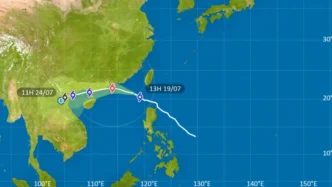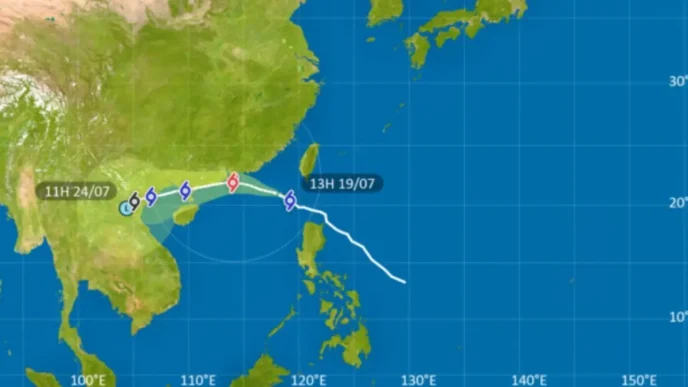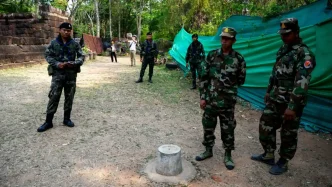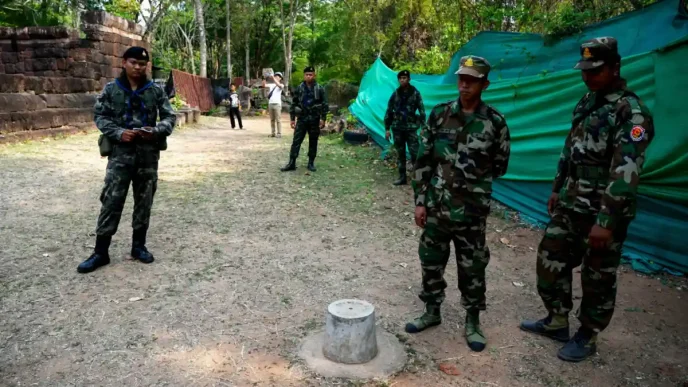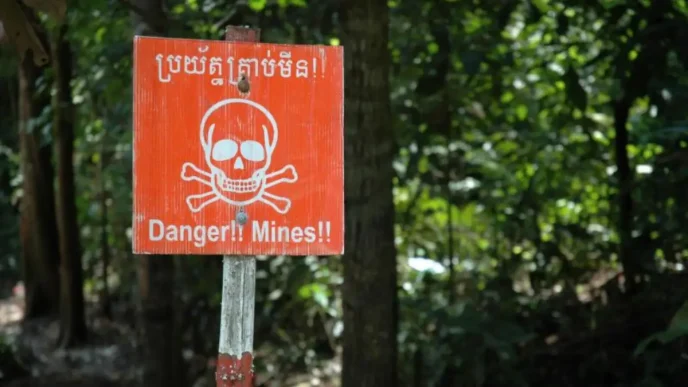Thailand, a key player in Southeast Asia’s economic landscape, is grappling with a complex set of challenges as local and global uncertainties continue to impact its trade-dependent economy. With its heavy reliance on exports and tourism, the country faces headwinds from fluctuating international markets, supply chain disruptions, and shifting geopolitical dynamics. As policymakers in Bangkok navigate these turbulent waters, the stakes are high for millions of Thais whose livelihoods depend on sustained growth.
Economic Slowdown and Export Pressures
Thailand’s economy, often hailed as a success story of export-led growth, has shown signs of strain in recent months. The nation’s export sector, which accounts for a significant portion of its GDP, has been hit by declining demand from major markets like the United States and Europe. According to verified data from local reports, Thailand’s export growth has slowed considerably in 2025, reflecting broader global economic challenges. This downturn is particularly concerning for industries such as electronics and automotive parts, which form the backbone of the country’s manufacturing base.
Beyond exports, the tourism sector—a vital economic engine—continues to recover unevenly from past global disruptions. While international arrivals have increased, the numbers remain below pre-pandemic levels, impacting small businesses and communities reliant on visitor spending. In popular destinations like Bangkok and Phuket, hoteliers and vendors express cautious optimism but highlight the need for sustained policy support to rebuild confidence in travel.
Policy Responses and Fiscal Strategies
In response to these challenges, the Thai government has rolled out a series of measures aimed at stabilizing the economy. Initiatives include targeted stimulus packages for small and medium enterprises, which employ a large share of the workforce, as well as incentives to attract foreign investment. A senior official from the Ministry of Finance emphasized the urgency of these steps, noting the importance of balancing short-term relief with long-term structural reforms to enhance competitiveness.
However, fiscal constraints pose a significant hurdle. Thailand’s public debt levels have risen in recent years, prompting debates over the sustainability of further borrowing. Analysts suggest that while stimulus measures are necessary, the government must prioritize investments in infrastructure and digital innovation to drive productivity gains. Such efforts could position Thailand to capitalize on emerging opportunities in the global economy, particularly in technology and green energy sectors.
Regional Context and Trade Dynamics
Thailand’s economic fortunes are closely tied to its role within the Association of Southeast Asian Nations (ASEAN), a bloc that collectively represents a significant share of global trade. As regional competition intensifies, particularly with neighboring Vietnam and Indonesia, Thailand faces pressure to maintain its edge in manufacturing and logistics. The country’s strategic location and well-developed infrastructure remain key assets, but adapting to evolving trade agreements and supply chain shifts is critical.
Geopolitical tensions, including ongoing trade disputes between major powers, and its ongoing border dispute with Cambodia further complicate the landscape. Thai exporters are caught in the crossfire of tariffs and trade barriers, necessitating a pivot toward alternative markets in Asia and Africa. Diversifying trade partnerships could mitigate risks, but it requires coordinated efforts between government and private sectors to build new networks and strengthen existing ones.
Domestic Impacts and Social Concerns
The economic slowdown has tangible effects on Thai households, particularly in rural areas and among low-income groups. Rising costs of living, coupled with stagnant wage growth, have strained family budgets, fueling calls for more robust social safety nets. In Isaan, Thailand’s northeastern region, farmers report declining incomes due to volatile commodity prices and unpredictable weather patterns, exacerbating rural-urban disparities.
Urban centers like Bangkok are not immune to these pressures. Informal workers, who form a significant portion of the city’s labor force, face heightened uncertainty as job opportunities in construction and services dwindle. Community leaders and non-governmental organizations have urged authorities to address these inequities, advocating for policies that prioritize inclusive growth over short-term gains.
Looking Ahead: Opportunities Amidst Uncertainty
Despite the challenges, there are glimmers of hope on Thailand’s economic horizon. The country’s burgeoning tech sector, supported by government initiatives to promote digital transformation, offers a potential pathway for diversification. Startups in Bangkok and Chiang Mai are gaining traction, attracting venture capital and fostering innovation in areas such as fintech and e-commerce. If nurtured effectively, this could position Thailand as a regional hub for digital economy activities.
Additionally, Thailand’s commitment to sustainability presents opportunities to align economic recovery with global environmental goals. Investments in renewable energy and eco-tourism could not only create jobs but also enhance the country’s appeal to conscious travelers and green-focused investors. However, translating these ambitions into tangible outcomes will require overcoming bureaucratic hurdles and ensuring accountability in policy implementation.
Navigating a Complex Future
As Thailand charts its course through global economic turbulence, the interplay between domestic priorities and international pressures will shape its trajectory. Policymakers face the delicate task of fostering resilience while addressing the immediate needs of vulnerable populations. For now, the path forward remains uncertain, with questions lingering about how effectively the nation can adapt to a rapidly changing world.
In the heart of Bangkok, where bustling markets coexist with gleaming skyscrapers, the resilience of the Thai people shines through. Their ability to weather past crises offers a reminder that, while the road ahead may be fraught with challenges, it is not without hope. How Thailand balances these competing demands will determine not just its economic future, but the well-being of generations to come.









